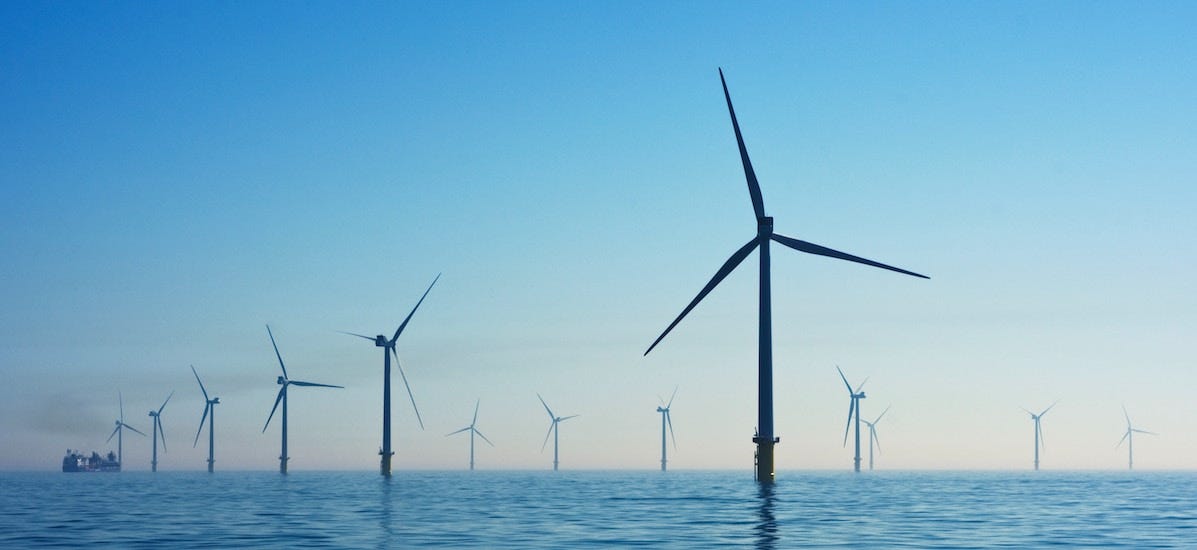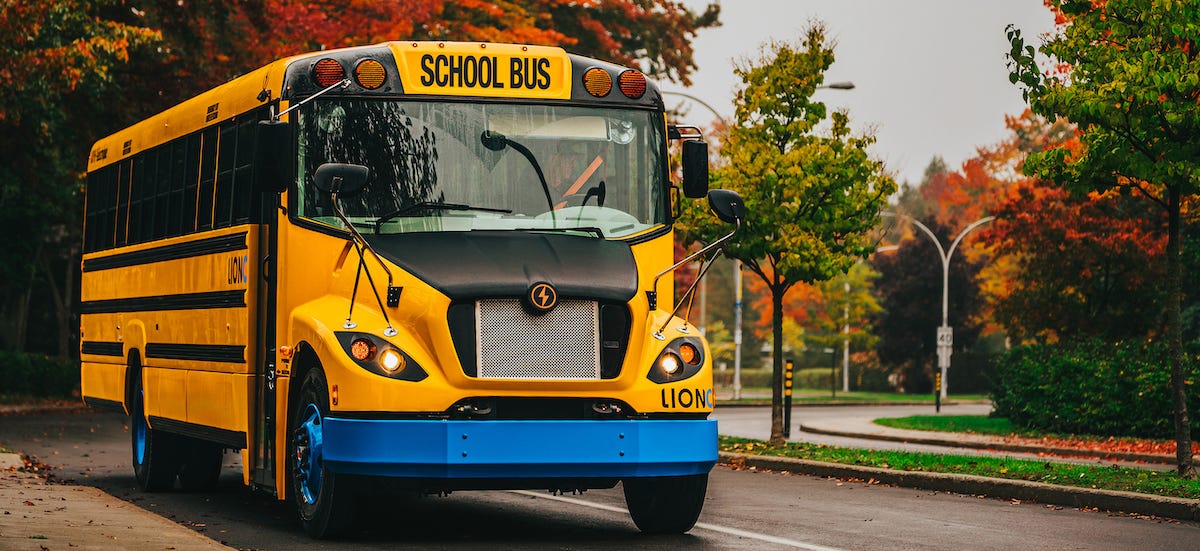CTC #49 - Green hydrogen moves ahead, electrifying buses, and fall climate events
Plus - Funding for biochemicals, Ontario and Quebec swap energy, and calls for a national fire service
Hey there,
Welcome to another issue of Climate Tech Canada. It’s been a quiet week, with folks out soaking up the end of the summer and getting ready for another school year.
This week in Canadian climate tech:
Offshore wind-to-hydrogen projects move ahead in NFLD
The case for electric school buses
Preview of fall climate tech events
📬 Have a deal, upcoming raise, or announcement for the newsletter? Hit reply to let us know.
📌 Post or find a role on our job board.
Subscribe below to get the latest updates on Canadian climate tech and support our work
💨 Wind-to-hydrogen takes off in NFLD

Four wind-powered green hydrogen projects are moving forward in Newfoundland & Labrador as the province aims to capitalize on its notoriously strong winds. The province lifted a moratorium on offshore wind projects last April, opening a new source of renewable energy. Coupled with proximity to markets in Europe and a hydrogen export agreement between Canada and Germany, more companies are now looking to the province’s plentiful wind to produce green hydrogen.
It’s a big deal for the province, which expects almost $12B in revenue over the next 40 years and a peak of more than 11,000 jobs during construction phases. Industry group Energy N.L. described it as the “start of a new industry” in the province.
The projects are led by EverWind NL, World Energy GH2, Exploits Valley Renewable Energy, and ABO Wind respectively, and will each generate between 2 and 5GW of energy from offshore wind. The EverWind and WorldEnergy GH2 projects expect to produce about 250,000 metric tonnes of hydrogen each once operational. The applications still need to go through additional approval processes, including environmental impact assessments.
📅 Dive deeper at “Unlocking Canada's Coastal Potential: Offshore Wind and Green Hydrogen”, hosted by Foresight Canada, Sept 19th.
🚌 Electric school buses
Electrifying school buses could be a win-win for Ontario, creating opportunity for the province’s auto sector and cleaner air for students, according to a new report from the Pembina Institute. Some Canadian automakers are already working in this space: Lion Electric and Nova Bus in Quebec, New Flyer in Manitoba, and GreenPower in B.C. Ontario is notably absent from the list.
Ontario is already investing heavily in EV manufacturing and supply chains, but the medium- and heavy-duty vehicle sector never fully recovered from the 2008 financial crisis. Investing in electrifying bus fleets could help turn it around.
Electric buses not only have a strong economic case, but also reduce emissions and improve air quality for students by eliminating exposure to diesel fumes. School buses are a strong candidate for electric vehicles due to their short, fixed routes and nightly charging at depots. Coupled with vehicle-to-grid capabilities, they could also turn into a fleet of batteries, helping meet energy demand while not in use.
📅 Upcoming events
Here’s a quick look at some of the climate tech events coming up across Canada this fall. By no means an exhaustive list, so if you’re hosting an event let me know!
Mission from MaRS: Announcing the Carbon Dioxide Removal Climate Champions
Sept 20th - Join to meet the six companies selected for MaRS’ new carbon dioxide removal (CDR) accelerator.
Carbon Talks: Startup Showcase Part Three: Point Source Capture
Sept 27th. Also on the carbon removal front, this event focuses on startups solving for point-source capture solutions in hard to abate sectors.
Electricity Transformation Canada
Oct 23-25th. Hosted by the Canadian Renewable Energy Association in Calgary, AB, this event brings together professionals across wind, solar, and energy storage.
📢 Milestones & News
🧪 Quebec-based Dispersa received a $500,000 loan from the feds to convert food waste into biosurfactants, used in detergents, textiles, cosmetics and more.
🌲 The feds invested $5.3M in BioFuelNet, an innovation cluster focused on developing biomass technology.
🚚 Canada is also investing $3M in zero-emission trucking projects, including a Zero-Emission Trucking Testbed in the Montreal area for real-world performance data.
🧯 A former army commander is calling for a dedicated climate disaster force to respond to disasters, while others are advocating for a national firefighting service.
⚡️ Ontario and Quebec signed an energy-swapping agreement, trading up to 600 MW of energy during their opposite peak periods (Quebec’s winter and Ontario’s summer).
🏠 The city of Nanaimo is the latest B.C. municipality to exclude natural gas as a primary heat source in new homes.
🪨 Nunavut is exploring geothermal energy as an alternative to diesel generators with the help of researchers from the University of Alberta.
🚗 South Korea-backed Voltus Energy will build a $750M facility to produce copper foil, a key component for EV batteries, in Granby, QC.
☕️ Here & There
Inside the Dalhousie lab helping Tesla build some of the world’s most advanced batteries
These researchers developed a way to capture moisture from the air by mimicking insects
Demand for a new type of tech worker - the tech farmer
Google Maps unlocks data on solar potential, air quality and pollen information
📌 Jobs
Visit our job board to see open roles at some of Canada’s most innovative companies working on EV charging, carbon capture, smart buildings and more.
➡️ Hiring? List your posting here.
Thanks for reading! If you’re enjoying the newsletter, share it with a friend or colleague to support our work and help get more folks into climate.
Justin



